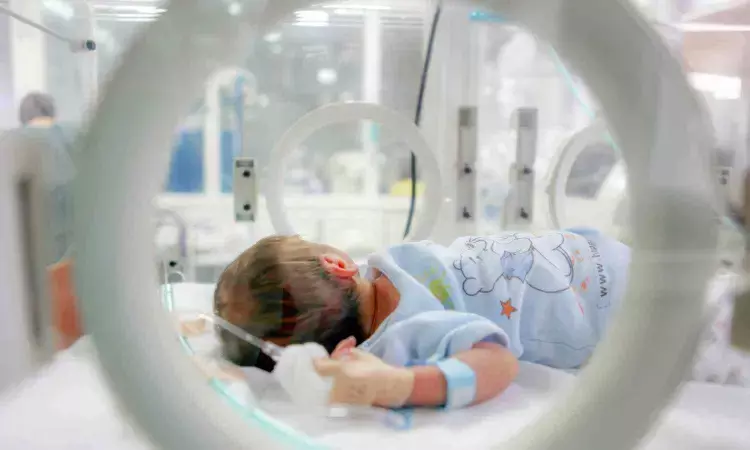- Home
- Medical news & Guidelines
- Anesthesiology
- Cardiology and CTVS
- Critical Care
- Dentistry
- Dermatology
- Diabetes and Endocrinology
- ENT
- Gastroenterology
- Medicine
- Nephrology
- Neurology
- Obstretics-Gynaecology
- Oncology
- Ophthalmology
- Orthopaedics
- Pediatrics-Neonatology
- Psychiatry
- Pulmonology
- Radiology
- Surgery
- Urology
- Laboratory Medicine
- Diet
- Nursing
- Paramedical
- Physiotherapy
- Health news
- Fact Check
- Bone Health Fact Check
- Brain Health Fact Check
- Cancer Related Fact Check
- Child Care Fact Check
- Dental and oral health fact check
- Diabetes and metabolic health fact check
- Diet and Nutrition Fact Check
- Eye and ENT Care Fact Check
- Fitness fact check
- Gut health fact check
- Heart health fact check
- Kidney health fact check
- Medical education fact check
- Men's health fact check
- Respiratory fact check
- Skin and hair care fact check
- Vaccine and Immunization fact check
- Women's health fact check
- AYUSH
- State News
- Andaman and Nicobar Islands
- Andhra Pradesh
- Arunachal Pradesh
- Assam
- Bihar
- Chandigarh
- Chattisgarh
- Dadra and Nagar Haveli
- Daman and Diu
- Delhi
- Goa
- Gujarat
- Haryana
- Himachal Pradesh
- Jammu & Kashmir
- Jharkhand
- Karnataka
- Kerala
- Ladakh
- Lakshadweep
- Madhya Pradesh
- Maharashtra
- Manipur
- Meghalaya
- Mizoram
- Nagaland
- Odisha
- Puducherry
- Punjab
- Rajasthan
- Sikkim
- Tamil Nadu
- Telangana
- Tripura
- Uttar Pradesh
- Uttrakhand
- West Bengal
- Medical Education
- Industry
Contracting RSV Before Age 2 Can Cause Long-term Lung Changes and functional Impairment, finds study

Infants and children who have severe cases of respiratory syncytial virus (RSV) before age 2 are likely to have changes to their lung structure and function that could affect respiratory health later in life. The study is published ahead of print in the American Journal of Physiology-Lung Cellular and Molecular Physiology and has been chosen as an APSselect article for April.
Most children contract RSV, a lower respiratory tract disease, before they are 2 years old. Mild forms of the disease mimic the common cold with symptoms such as coughing, runny nose, congestion and sneezing. Severe forms of RSV can include wheezing, trouble breathing and, when oxygen levels are compromised, a blue tinge to the skin. A severe infection can affect a child’s future health as well. “[S]evere early-life RSV infection is associated with childhood wheezing related to respiratory viral infection exacerbation, allergies and asthma, that is accompanied by compromised lung function,” the researchers wrote.
To study severe RSV, the researchers measured lung function and alveolarization in infant mice. Alveolarization is the development of alveoli, the sacs in the lungs responsible for exchanging oxygen and carbon dioxide. “Alveolarization continues into adulthood with maximum alveolarization occurring between [2 and 3 years old] in humans,” the team wrote. Production of large numbers of immune cells occurs around the same time.
The researchers measured these markers at five weeks and three months after the initial RSV infection and again after a reinfection with the virus. They found “significant defects” in the ability of the lungs to stretch and expand during breathing. Structural changes to the mice’s lungs included an increase in alveoli size but fewer individual alveoli after RSV infection.
“These data indicate that the lungs of mice following an early-life RSV infection have a decreased lung function even at [three months] postinfection,” the research team wrote. “Importantly, the structural defects of the early-life infected mice largely mimic the clinical setting where severe exacerbations are observed in children for several years following a severe early-life respiratory infection, especially RSV.”
Reference:
Carrie-Anne Malinczak et al, Early-life pulmonary viral infection leads to long-term functional and lower airway structural changes in the lungs, American Journal of Physiology-Lung Cellular and Molecular Physiology (2024). DOI: 10.1152/ajplung.00300.2023.
Dr Kamal Kant Kohli-MBBS, DTCD- a chest specialist with more than 30 years of practice and a flair for writing clinical articles, Dr Kamal Kant Kohli joined Medical Dialogues as a Chief Editor of Medical News. Besides writing articles, as an editor, he proofreads and verifies all the medical content published on Medical Dialogues including those coming from journals, studies,medical conferences,guidelines etc. Email: drkohli@medicaldialogues.in. Contact no. 011-43720751


